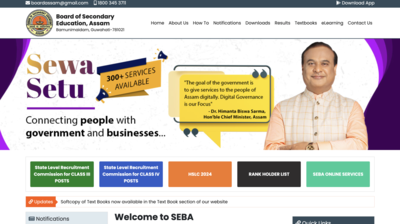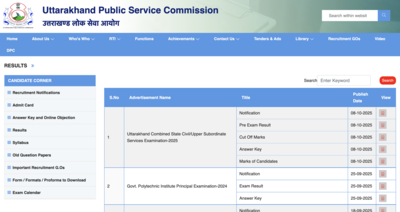10 college degrees Harvard hints are losing value and what to study instead

In recent years, many students have expressed anxiety about whether their chosen major continue to pay off. Harvard’s faculty and affiliated economists have published influential work on how credential value, job sorting and degree inflation change the returns to different degrees.
Degrees losing market value
Harvard labour economist David J Deming and Kadeem Noray revealed in their 2020 study that the returns to some traditional applied degrees like computer science, engineering and business, diminish rapidly over an individual’s career due to fast job skill obsolescence. They noted, “The earnings premium for graduates majoring in technology-intensive subjects declines rapidly over time as workers sort out of faster-changing occupations.” This underscores that not all degrees offer sustained value without continual skill updating.Similarly, reports from Harvard Business School and other Ivy League career centers during early 2025 note that even prestigious MBAs have faced growing difficulty in landing top-tier employment swiftly, signalling a broader erosion in the value of classic business degrees.The humanities and social sciences, traditionally seen as less directly job-oriented, have also declined in popularity according to surveys documented by The Harvard Crimson (2013 and ongoing), citing a sharp drop in humanities concentrators. The shift reflects students’ and employers’ increased focus on STEM and applied fields with clearer career pathways. Many of these degrees face “degree reset” trends characterised in Harvard’s 2022 report in Harvard Business School according to which, employers drop generic degree requirements and instead demand clear and specific skills. Here are the 10 degrees losing value.
- General Business Administration (MBA included) – Rapid market saturation and shifting hiring preferences have softened returns.
- Computer Science – Though lucrative at entry, rapid skill obsolescence demands constant upskilling.
- Mechanical Engineering – Affected by automation and offshore manufacturing.
- Accounting – Automation and AI reduce long-term job growth.
- Biochemistry – Narrow academic focus with limited direct application.
- Psychology (undergraduate) – Limited direct career pathways without advanced study.
- English and Humanities – Declining enrolments reflect career uncertainties.
- Sociology and Social Sciences – Similar to humanities, with less direct job alignment.
- History – Lower mid-career wage premiums.
- Philosophy – Critical thinking valued but less directly marketable.
What to study instead?
Harvard research and labour market forecasts recommend cultivating adaptable, hybrid skill sets combining technical proficiency with creativity and social intelligence.
- Interdisciplinary
STEM fields with continuous learning frameworks. - Data Science and Analytics – High-demand, fast-growing, adaptable.
- Health Sciences and Allied Health Professions – Strong labour demand.
- Environmental Science and Sustainability Studies – Emerging urgent fields.
- Digital Marketing and Media – Demand for creative-tech hybrids.
- AI and Machine Learning – Cutting-edge tech domain.
- Entrepreneurship with Tech Focus – Combining business acumen with innovation.
As noted by a 2025 Student Choice report, strong ROI majors include engineering, computer science and nursing, while creative fields augmented with emotional intelligence and critical thinking remain valuable.Harvard’s insights illuminate the shifting landscape of higher education value. Legacy degrees once seen as foolproof now require supplementation with new skills and adaptability to maintain career advantage. For students navigating choices, investing in interdisciplinary, technology-enhanced and socially relevant programs increases the odds of sustained employment and growth. The college degree remains relevant but evolving in definition and demand. Harvard’s research advocates for education that anticipates change, emphasizes continual learning and integrates both technical and human-centered skills.




